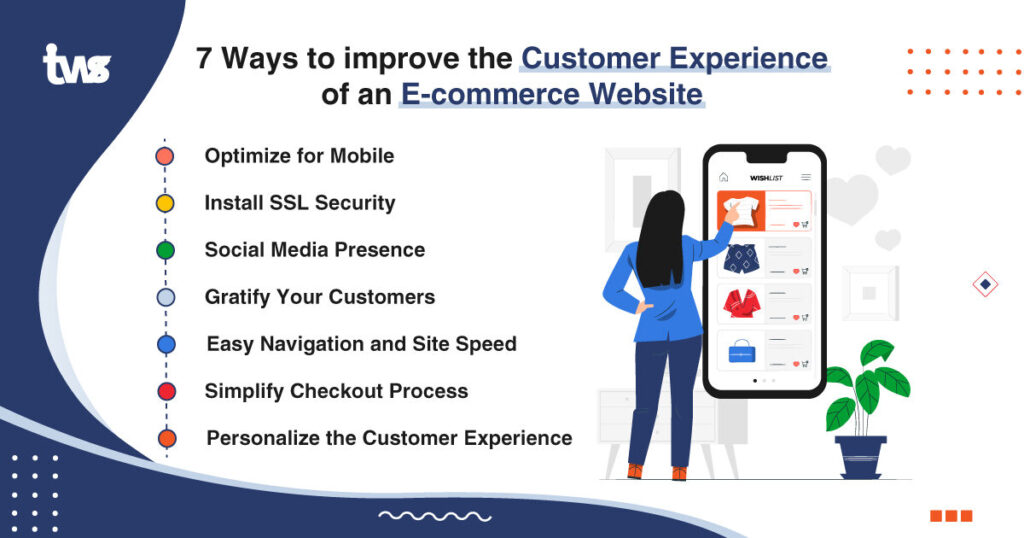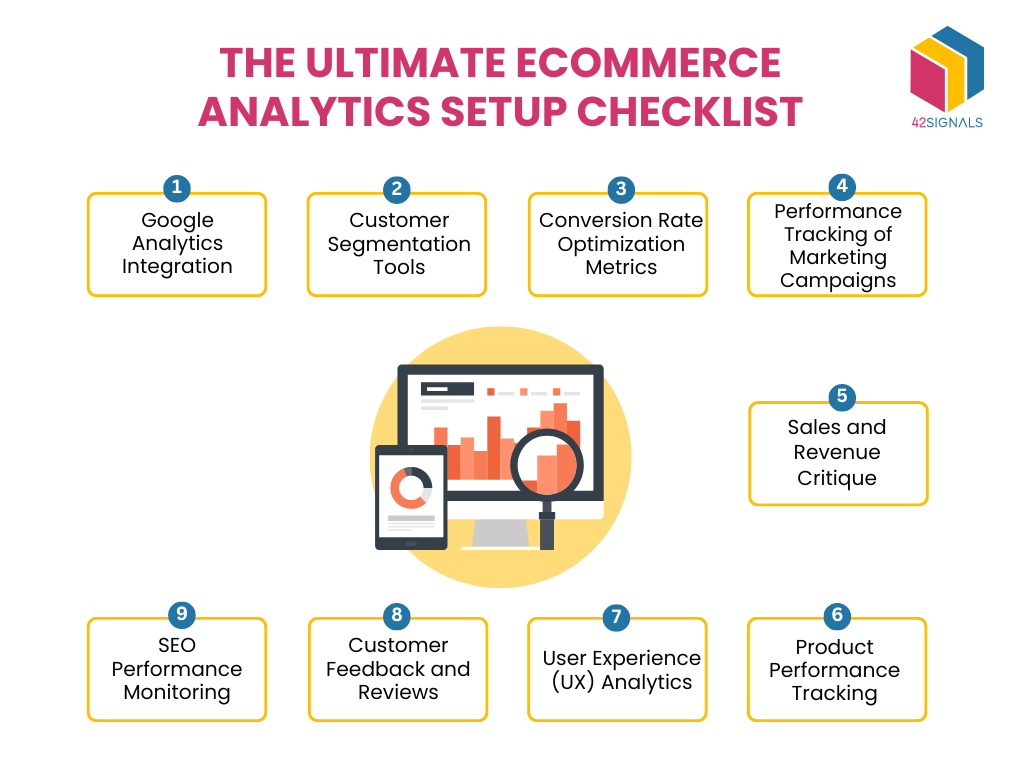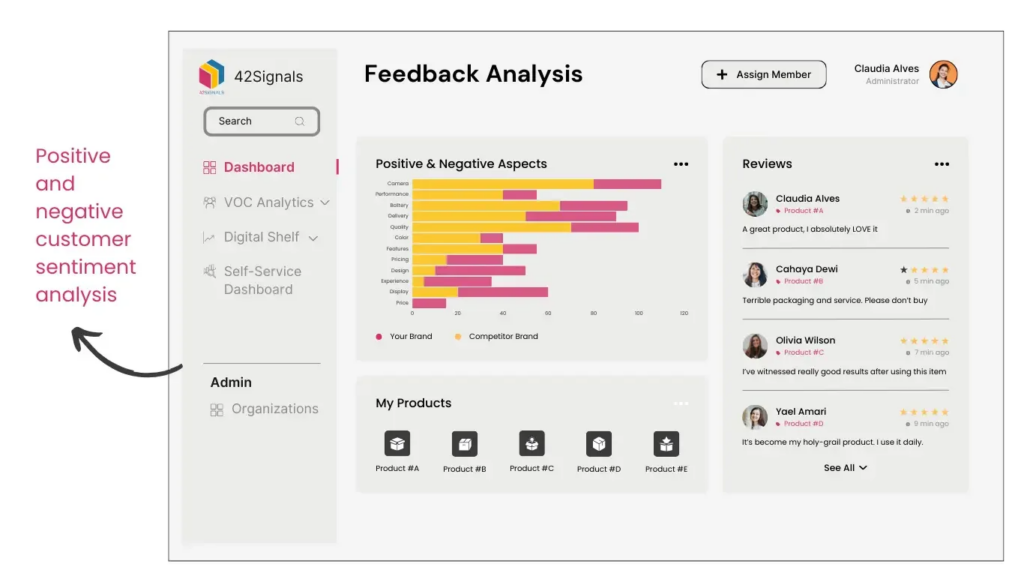With the growing competition, adopting effective strategies can make the difference between thriving and merely surviving for small business owners. This article provides indispensable tips tailored to the unique challenges faced by small businesses.
From honing a user-friendly website to maximizing social media presence, these five must-know strategies offer actionable insights. Understanding these elements empowers entrepreneurs to engage customers, boost sales, and establish a strong online presence. Embrace these proven techniques to propel your e-commerce business to new heights in today’s digital marketplace.
1. Optimizing Website for User Experience

Image Source: tekkiwebsolutions
A user-centric e-commerce website is pivotal for converting casual visitors into loyal customers. Small business owners should prioritize intuitive navigation by using clear, concise menus, and including a search bar for easy product discovery.
Moreover, page load speed cannot be overemphasized; slow websites deter potential buyers. Optimizing images, leveraging browser caching, and minimizing JavaScript can significantly enhance speed.
A seamless checkout process is also essential. Reducing the steps to complete a purchase and offering multiple payment options can minimize cart abandonment rates.
Regular usability testing should be conducted to identify and rectify any user experience barriers.
2. Leveraging Social Media for Branding & Sales
Social media platforms offer unparalleled opportunities for small businesses to enhance their brand and drive sales. By maintaining an active presence on channels such as Facebook, Instagram, and LinkedIn, businesses can engage with their target audience more effectively. Posting consistent, high-quality content helps establish brand identity and build customer loyalty. Utilizing targeted ads and promotions can further boost visibility and conversion rates.
Small businesses should also leverage user-generated content to create a sense of community and trust. Encouraging customers to share their experiences and tag the brand increases organic reach and provides authentic testimonials. These strategies, combined with regular interaction and responsive customer service, foster a strong online reputation.

Image Source: manypixels.co
3. Implementing Effective SEO Strategies

Image Source: Mangools
Small business owners should prioritize SEO for increasing visibility and driving traffic to their eCommerce sites. Effective strategies include optimizing product descriptions with relevant keywords and ensuring each page has unique meta titles and descriptions. Leveraging long-tail keywords can capture more specific search queries and reduce competition.
Creating a blog with valuable, keyword-rich content can further enhance search rankings. It’s crucial to ensure the site is mobile-friendly, as search engines prioritize mobile-optimized content. Regularly updating the site and monitoring analytics can help identify areas for improvement and track the success of SEO efforts.
4. Utilizing Ecommerce Analytics to Drive Decisions

Image Source: Master Your Online Store: The Ultimate eCommerce Analytics Setup Checklist
E-commerce analytics provides essential insights into customer behavior, sales trends, and overall business performance. By examining metrics such as conversion rates, cart abandonment rates, and customer lifetime value, small business owners can identify areas for improvement and optimize marketing strategies. Using analytics tools, businesses can:
- Track which products are most popular.
- Analyze customer demographics.
- Monitor the effectiveness of promotions.
- Identify traffic sources driving the most sales.
Leveraging these insights helps businesses make data-driven decisions, enhancing customer experience and increasing revenue. Regular analysis and interpretation of e-commerce data transform raw numbers into actionable business strategies.
5. Offering Exceptional Customer Service by Monitoring Customer Reviews

Monitoring customer reviews enables businesses to gain insights into user experiences and address concerns promptly. By actively tracking feedback across platforms, companies can identify recurring issues and implement necessary changes to improve product quality or service.
In addition to promptly responding to negative reviews, businesses can use positive feedback to reinforce successful strategies. Engaging with customers’ comments shows a commitment to satisfaction and builds trust. Utilizing tools for tracking reviews can streamline this process, ensuring no comment goes unnoticed and fostering a customer-centric approach critical for long-term success.
Conclusion
Staying ahead in the competitive e-commerce landscape requires small business owners to continuously monitor and adapt to emerging trends and innovations. Key strategies include:
- Continuous Learning: Engage in ongoing education through webinars, courses, and industry conferences.
- Tech Adoption: Incorporate the latest technologies such as AI, VR, and automation tools to enhance customer experience.
- Consumer Insights: Utilize data analytics tools to gain insights into consumer behavior and preferences.
- Flexible Strategies: Be prepared to pivot strategies in response to market changes and new industry standards.
Adaptability is key to long-term success in the evolving e-commerce world.
For small business owners looking to leverage data analytics to drive their e-commerce growth, partnering with 42Signals offers actionable insights and powerful tools that can help in making informed decisions to boost sales and streamline operations. Schedule a demo today!




